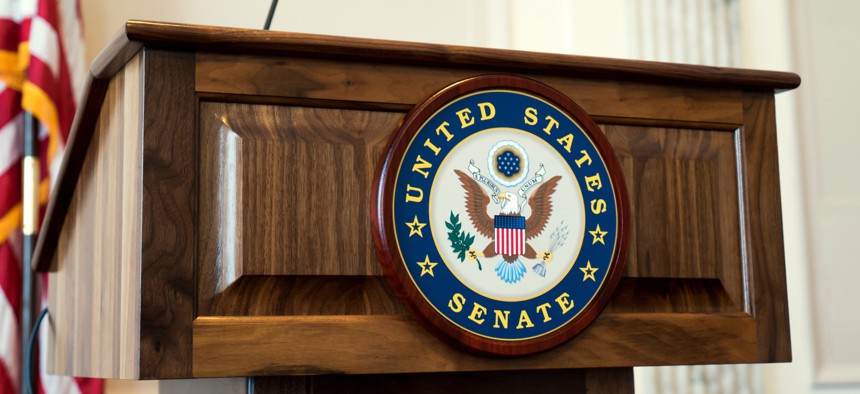Senate Appropriators Seek Alternatives to TMF

Getty Images
The House package includes a $100 million infusion for the Technology Modernization Fund, but the Senate appropriators have longstanding doubts about the no-year revolving fund.
Senate appropriations bills released by Democrats in late July omits new money for the Technology Modernization Fund, citing concerns about how to best fund governmentwide initiatives.
Instead, the legislation would tinker with a different funding mechanism run by the General Services Administration and the Office of Management and Budget, increasing its spending cap from a total of $32 million in both fiscal years 2022 and 2021, respectively, to $100 million.
Currently, the mechanism “allows GSA/OMB to tap federal agencies to fund certain governmentwide councils,” a Senate Appropriations Committee spokesperson told FCW in an email.
The bill modifies the language so that the funds could be spent on “government-wide initiatives, mainly tech projects,” they said.
The committee opted for this mechanism after reviewing a joint IT operating plan from OMB and GSA — a report it requested during last year’s appropriations. The plan gives an overview of TMF, GSA’s Federal Citizen Service Fund, OMB’s Information Technology Oversight and Reform Fund spending and projects.
The committee, however, is “still concerned that the current funding mechanisms may not be the best way to finance government-wide initiatives,” according to its explanatory statement released with the bill.
The statement then directly points to the modification of this other mechanism, saying that these changes are being made to give OMB and GSA more resources “to directly invest in government-wide and other multi agency financial, information technology, procurement, and other management initiatives.”
The draft text of the bill also requires that OMB send certain committees on Capitol Hill a spending plan for the money.
“We’re in a similar situation to where we’ve been before, with the Senate continuing to have doubts about whether or not the TMF is the right way to invest in these sorts of IT modernization projects,” Mike Hettinger, a former House staffer who lobbies Congress on technology and management issues, told FCW.
Hettinger added that these perennial issues about appropriations law and accountability aren’t directly connected to IT modernization policies, but are playing out in that arena.
The Senate’s proposal differs from the funding package passed by the House July 20, which included $100 million for TMF. Both proposals fall short of the White House ask for $300 million in its fiscal year 2023 budget request.
On the House side, House Majority Leader Steny Hoyer (D-Md.), an original sponsor of the law that created TMF, told FCW via email that he’s “disappointed” that the Senate didn’t allocate any new money for TMF in the bill.
“TMF has a proven track record of upgrading mission critical systems across many agencies, and has bicameral and bipartisan support,” he said. “I remain committed to ensuring TMF funding is included in the final appropriations legislation.”
Another House cosponsor, Gerry Connolly (D-Va.) also told FCW in a comment that “Congress must continue to build on these successes” and that “demand from agencies far exceeds current funding” of the TMF.






